Honey is a popular ingredient useful in many ways from baking to medicinal remedies. But have you ever wondered, is honey gluten-free? Find out if this sweet ingredient is gluten-free and safe for someone with celiac disease, gluten intolerance, or on a gluten-free diet.
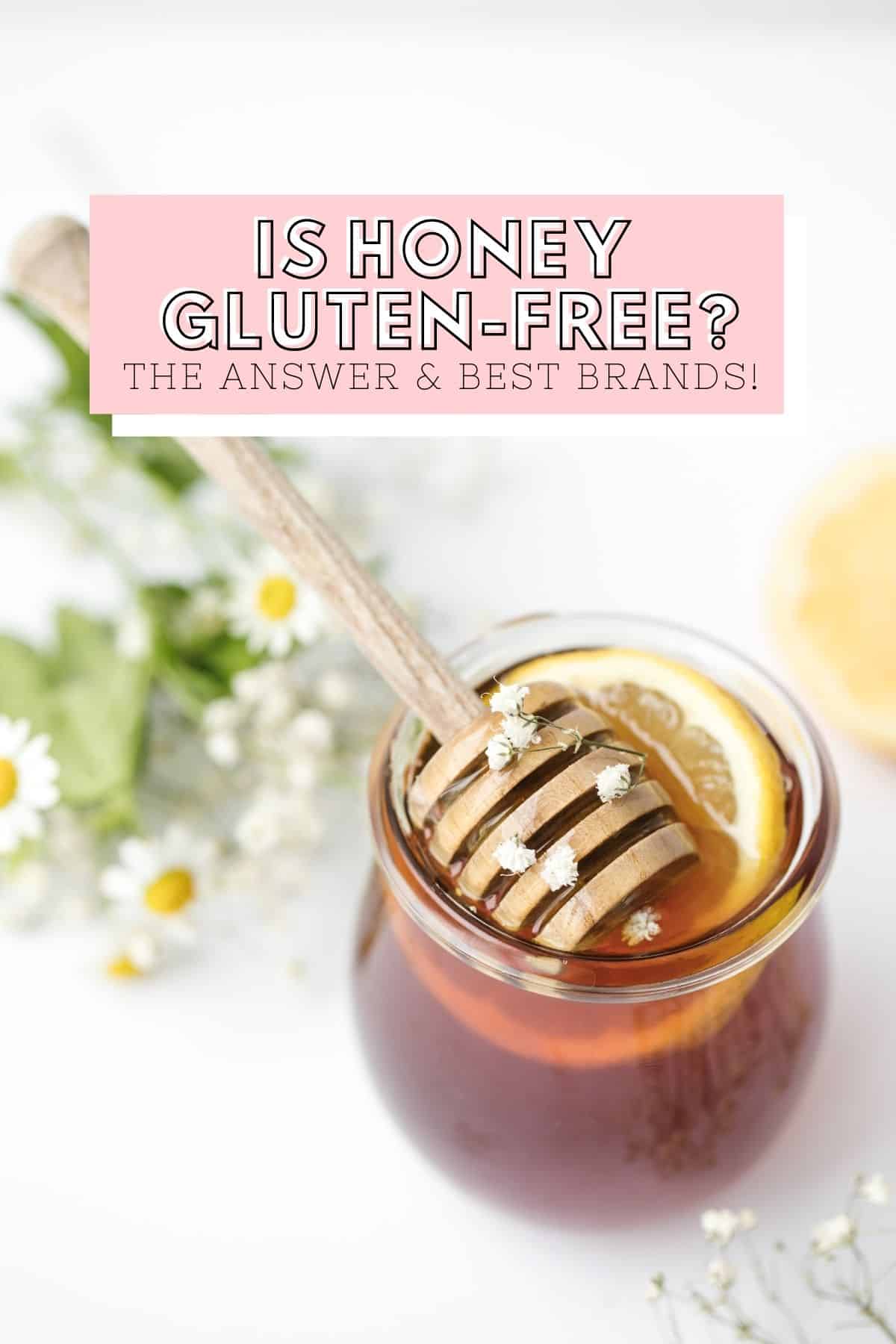
Jump to:
What is Honey?
Honey is a naturally sweet substance, produced by honey bees from the nectar of plants. Bees produce honey to act as a food store for the colony for periods when there are no flowers, or the climate is adverse.
For humans, honey is a high-carbohydrate food that contains a rich diversity of minerals, proteins, and vitamins, which add nutritional variety to the diet.
How is Honey Made?
Honey is made entirely by honey bees. Bees collect flower nectar, which is broken down into simple sugars by the bees' digestion. The liquid is then stored inside the honeycomb. The design of honeycomb and fanning from the bees, cause most of the liquid to evaporate, turning the sweet liquid into honey. Bees then cap the honeycomb with beeswax, where the honey can now be stored indefinitely.
The type, color, and flavor of honey depends on the nectar collected. For example, clover honey comes from nectar collected from clover flowers. Honey from orange blossom nectar is usually light in color compared to honey from avocado or wildflower nectar, that typically has a darker amber color.
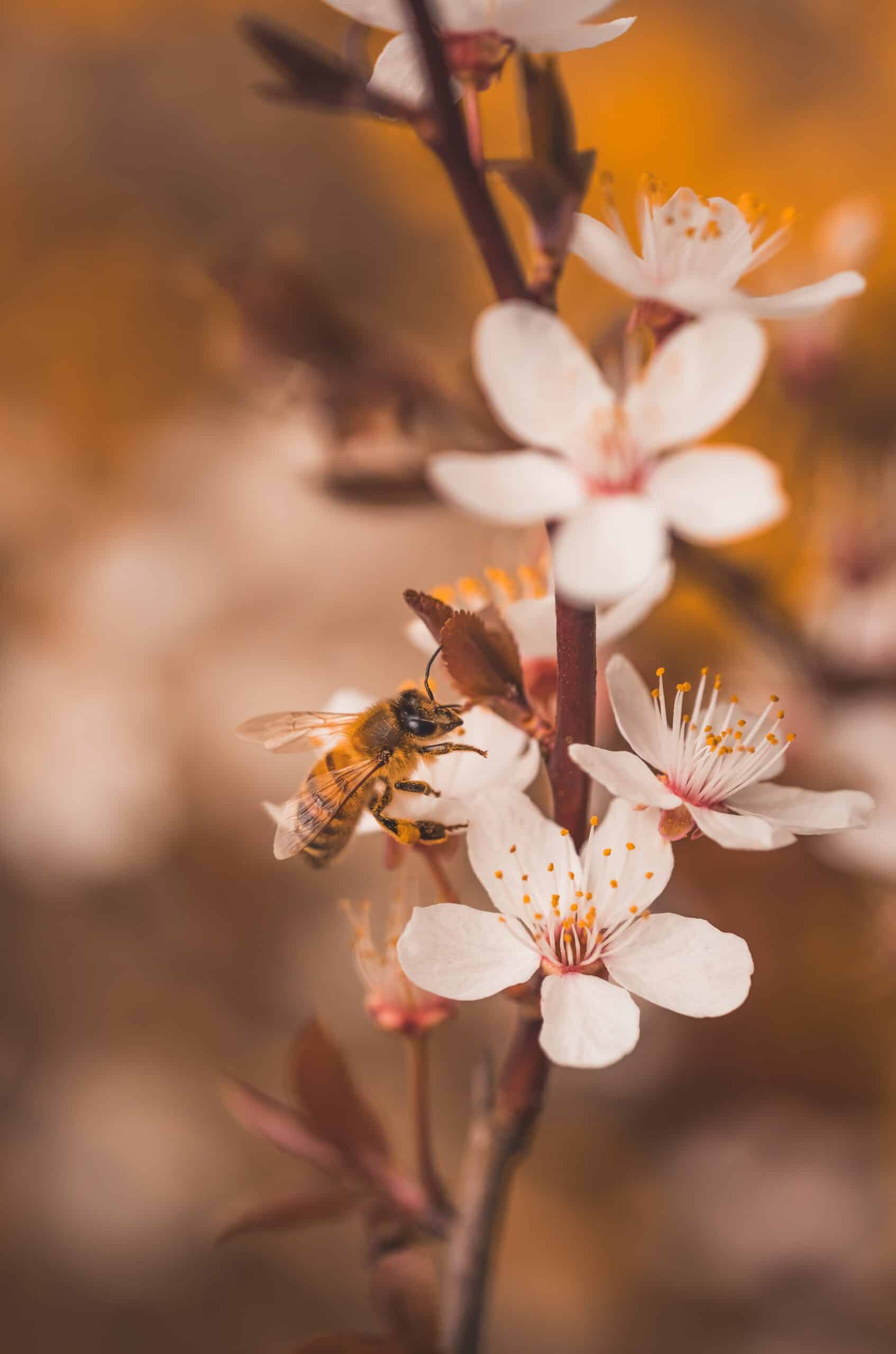
To harvest honey, beekeepers collect the honeycomb frames and remove the wax caps placed by the bees. The frames are placed in a centrifuge, which spins, pulling honey out of the comb.
Honey is then heated and strained or filtered to remove any remaining wax or other particles. Most of the honey found in grocery stores is pasteurized to kill yeast, improve color, remove crystallization, and extend shelf life. Honey is then bottled, packaged, and sold to the consumer.
Benefits of Honey
- Honey is often used as a natural sweetener, on its own or in baked goods. It is adds delicious flavor when drizzled in tea, over a breakfast bowl, or even on peanut butter toast. Honey also adds a unique sweetness to salad dressings or marinades.
- It is often used in baked goods to reduce or replace the amount of cane sugar or brown sugar in a recipe. Honey can also replace maple syrup or corn syrup in certain situations.
- Due to its carbohydrate content, honey can provide a natural energy boost.
- Honey is great for soothing a cough or sore throat.
- Not only that, honey has medicinal properties that may have anti-bacterial, antiseptic, and anti-fungal effects.
- Raw honey has been shown to provide a wide array health benefits, including vitamins, minerals, amino acids, and antioxidants.
Is Honey Gluten-Free?
The short answer is yes, honey is a naturally gluten-free food. The only ingredient in honey is honey! Honey is made from flower nectar, not the gluten-containing grains of wheat, barley, or rye.
Provided the ingredient label does not indicate the presence of an added gluten-containing ingredient or a statement that an allergen may be present, then the honey should be safe to consume.
When is Honey Not Gluten-Free?
While honey is naturally gluten-free, there are a few situations that could make honey not gluten-free.
- While rare to find, there is a potential for honey to come into contact with gluten in manufacturing. This could happen if honey were to be processed in a facility with wheat or gluten-containing foods, which could introduce traces of gluten into the final product if proper procedures are not in place.
- If beehives are placed near agricultural lands where grains containing gluten are grown, it may be possible for dust to get into the hives.
- Some flavored honeys or honey-based food products may include gluten-containing ingredients.
The best advice here is to check the labels for added ingredients or allergen statements. If you are highly sensitive to cross contamination, you may want to research the specific brand, either through their website or by giving them a call, to find out a little more about their manufacturing processes. If you're getting honey from artisan beekeepers, ask them questions about their hives and practices.
Another area that could cause an issue is in the home:
- If you are using a jar of honey in the home, be sure not to get crumbs from bread or biscuits into the honey.
- Rather, use a squeeze bottle or pour out the necessary amount of honey from the jar before using.
- Never put a knife or spoon into a jar of honey if it has been in contact with a source of gluten.
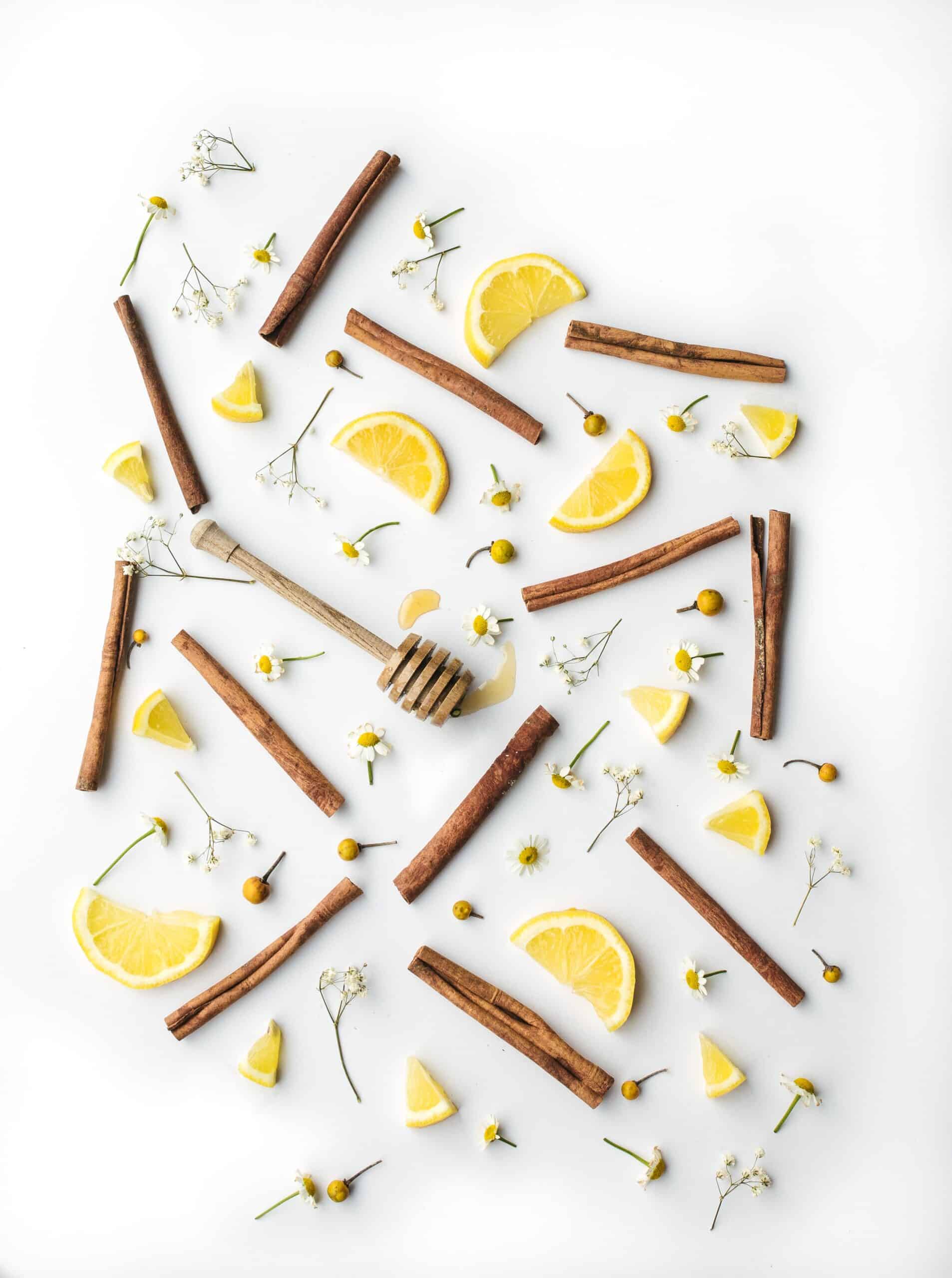
What are the Best Gluten-Free Brands of Honey?
Since honey is a naturally gluten-free food, you may find that some honey is labeled gluten-free, while others are not. This is because in the U.S., the gluten-free claim is voluntary.
While it isn't necessary to only consume honey that is specifically labeled gluten-free, some brands have taken the extra step to label their honey as gluten-free. In this case, the brand should be validating that the honey is <20ppm gluten.
Below are some common brands currently labeling their honey as gluten-free. These are some of the best choices for peace of mind when it comes to gluten-free honey.
- Beekeeper's Naturals
- Comvita Manuka Honey, certified gluten-free
- Honey Acres, certified gluten-free
- Nature Nate's
- Sue Bee Honey
- Wholesome Sweeteners
- Mike's Hot Honey
- Augason Farms Honey Powder, certified gluten-free.
The Bottom Line
- Honey is naturally gluten-free.
- Some honey brands label and/or certify their honey gluten-free.
- While a gluten-free label provides an added level of confidence, honey does not necessarily need to be labeled gluten-free to be safe to consume. Most honey, whether from large manufacturers or local beekeepers, should be safe to use.
- Check the label for added gluten ingredients or an allergen statement. If you're unsure, check the supplier's website or give them a call.
If you enjoyed this article, be sure check out these related gluten-free topics as well!
- Is brown sugar gluten-free?
- Is bouillon gluten-free?
- Is molasses gluten-free?
- Is vanilla gluten-free?
- Is cinnamon gluten-free?
- Are Snickers gluten-free?, Are Doritos gluten-free?, Is Gatorade gluten-free?, or Is Philadelphia cream cheese gluten-free?
Gain access to our FREE exclusive mini-series:
Gluten-Free Baking and Lessons Learned!
Plus, be the first to know about new recipes and exciting announcements!
📩 Sign up for the Mini-Series Here! 📩
Disclaimer: The information in this article is the personal opinion of the author and for educational purposes only. This is not medical or nutritional advice. Please consult a doctor or medical professional before making changes to your diet or regarding any health related decisions. Ingredient information was accurate at the time of posting but should always be verified by the consumer by checking the product ingredient label for the most up to date information.
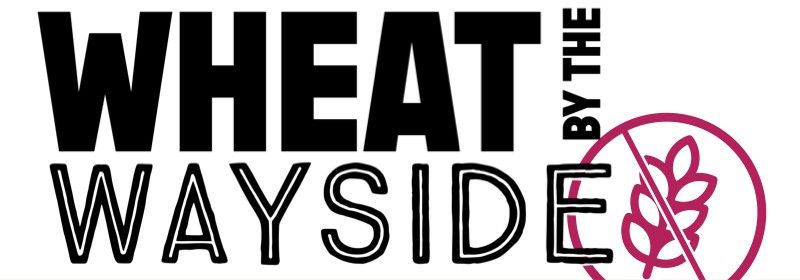

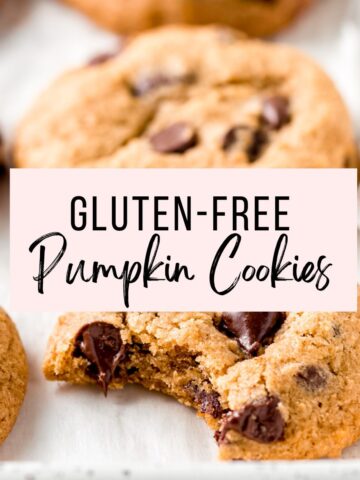
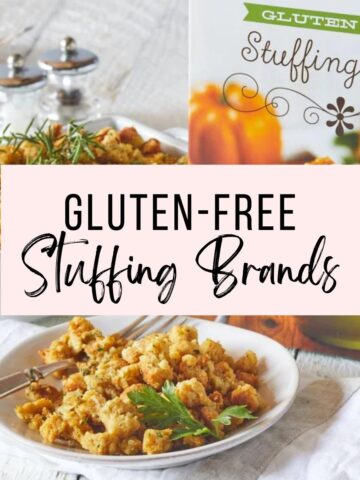
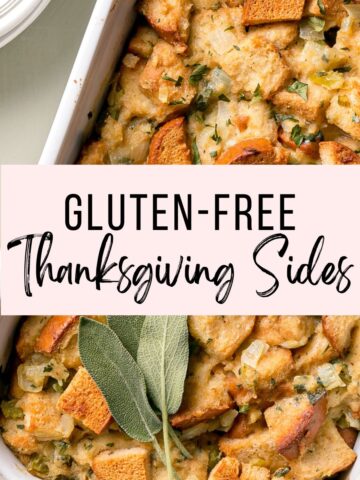
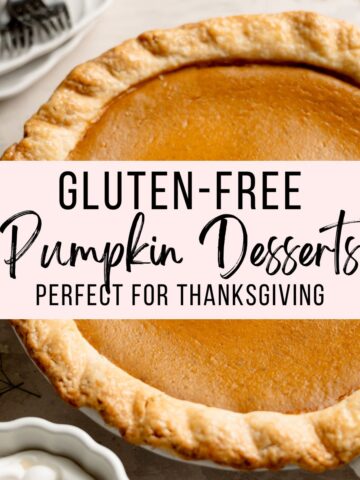
Kathryn
Thank you for your awesome website. I am 72 and struggled for many many years. A smart doctor finally tested me and I was gluten intolerant. It has been difficult at first I'm also diabetic, lactose intolerant, allergic to peanuts and all nuts, chocolate. I eat an extremely clean diet. I feel so much better. I finally conviced my 23 year old grandson to start eating gluten free. He is feeling so much better. Again thank you. Him and I are having pumpkin pie this year for Christmas.
Katie | Wheat by the Wayside
Happy you're all feeling better. I'm glad you found my website and find it useful!